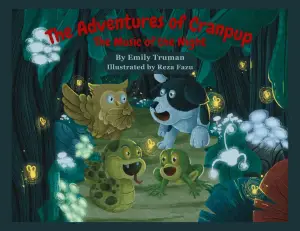As an enthusiastic reader with a penchant for historical fiction, I was drawn to The Bookseller of Inverness because of its rich context and gripping premise. Set in the aftermath of the 1746 Battle of Culloden, the story immediately sparked my interest. I like books that intertwine history with mystery, and this one promised to deliver both. With a backdrop steeped in the struggles of the Jacobite uprisings and the complexities of Highland life, I couldn’t wait to dive in.
The narrative revolves around Iain MacGillivray, a survivor of the Culloden battle who is left psychologically and physically scarred. Transitioning from a traumatized soldier to a quiet bookseller, Iain soon finds his past catching up with him when a mysterious stranger is murdered in his shop, setting off a chain of events that pit him against whisperings of old Jacobite loyalties and betrayals. The introduction encapsulated suspense—was the stranger seeking something important? Did he find it before succumbing to violence? My curiosity was piqued from the start.
Upon reading, I was struck by two substantial positives. First, the depth of character development. Reviewer G. Mansfield rightly encapsulates it as "a pleasure to read about," and I wholeheartedly agree. Each character feels intricately crafted, with backstories that add richness to their motives and actions. Morag, Iain’s grandmother, shines brightly; her strength and insight had me rooting for her throughout the story.
Secondly, I appreciated the author’s commitment to historical accuracy. The vivid descriptions of the Highlands made me feel as if I were walking alongside the characters, absorbing the beauty of the landscapes while wrestling with the tension of their circumstances. I felt transported to a time when old wounds were brought to the surface, and loyalties were continuously tested, which is precisely what reviewer Beth Deese noted as "loads of compelling history."
However, it’s essential to note some drawbacks that other readers have also pointed out. While the detailed history enriches the narrative, some may find that it overshadows the plot itself, as indicated by Deese’s critique of a "weak plot." I sensed this as well—at times, the focus on historical exposition detracted from the immediacy of the main storyline.
Additionally, the pacing seemed uneven in certain sections, which affected the overall flow. Some readers, like John A. Van Devender, mentioned that certain plot gaps might hinder emotional connections with the characters. I can relate; while I found the historical groundwork fascinating, I sometimes felt that the story dragged in places, making it tough to maintain momentum.
Despite these drawbacks, I found The Bookseller of Inverness compelling and engaging. It painted a vivid picture of a tumultuous time in Scottish history, adeptly weaving in themes of loyalty, betrayal, and survival. I commend MacLean for her ability to bring the characters and settings to life—this was especially touching when Iain reflected on his scars, both visible and hidden, as a testament to his resilience.
In conclusion, I would recommend this book to anyone who appreciates a blend of history with a touch of mystery and emotional depth. It’s a rich narrative that may have its pacing issues and some plot weaknesses, but it ultimately delivers a lyrical and haunting experience. If you’re keen to explore the shadows of history and the weight of personal battles, The Bookseller of Inverness deserves a spot on your bookshelf. Overall, I rate it 4.5 out of 5 stars. A definite read for fans of historical thrillers!








